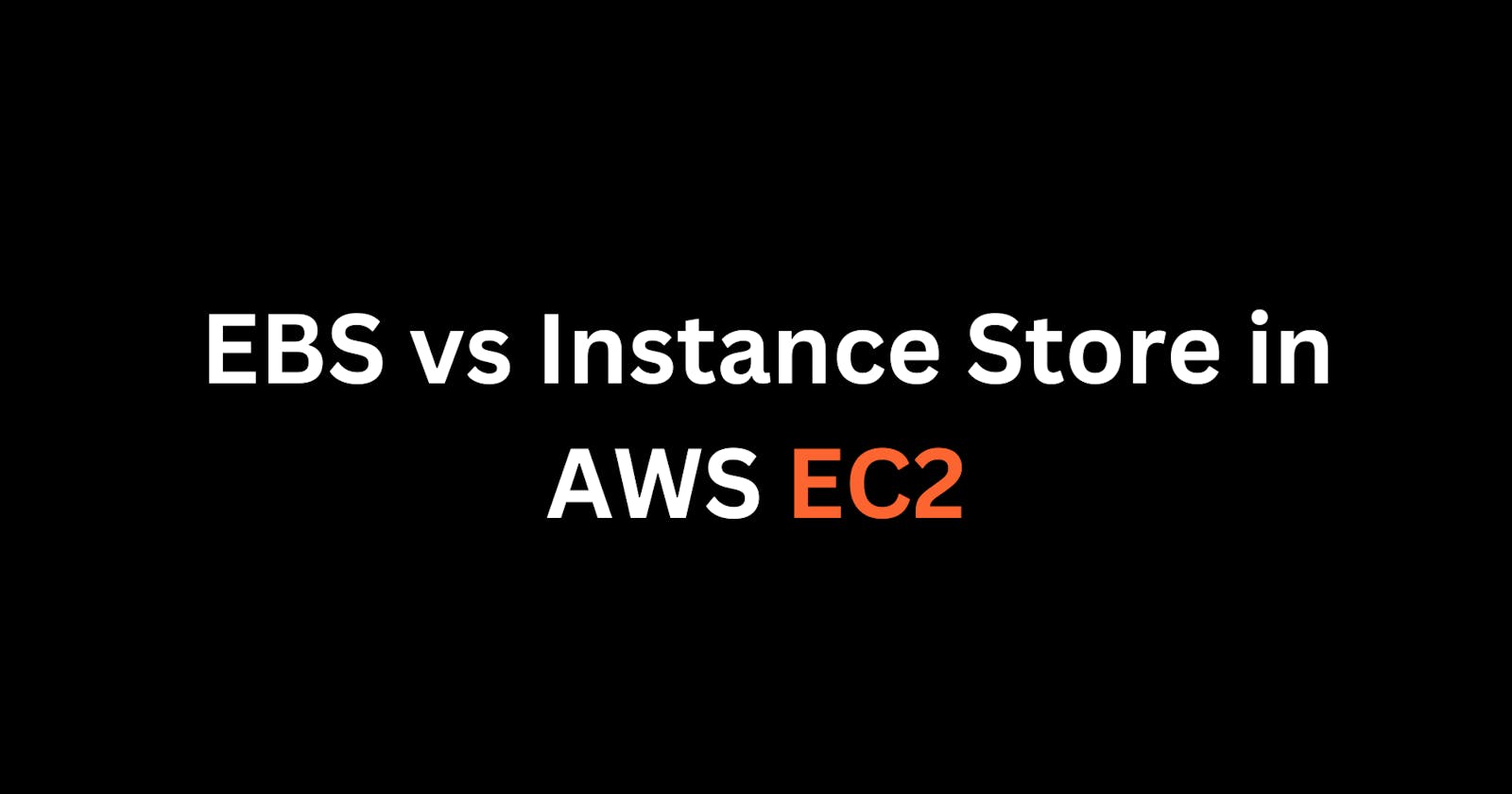Amazon Web Services (AWS) offers a variety of storage options for Elastic Compute Cloud (EC2) instances, each with its own characteristics and use cases. Two primary options are the AWS Instance Store and Amazon EBS (Elastic Block Store), each serving distinct purposes and providing different features.
Persistence: The AWS Instance Store provides non-persistent storage, meaning that data stored on it is lost upon instance termination, and even during stop and start actions. On the other hand, Amazon EBS offers persistent storage, where data remains intact even if the instance is terminated, but deletion upon termination needs to be specified using "DeleteOnTermination".
Performance: When it comes to performance, the AWS Instance Store typically offers higher I/O performance. This makes it suitable for applications requiring fast access to temporary data or caching. In contrast, Amazon EBS provides consistent performance, making it reliable for critical data storage and applications that demand stable throughput.
Redundancy: In terms of redundancy, the AWS Instance Store lacks redundancy as data is stored locally on the EC2 host. Conversely, Amazon EBS offers replication and redundancy within an Availability Zone (AZ), enhancing data reliability and availability.
Durability: The durability of data stored in the AWS Instance Store is lower compared to Amazon EBS. Instance Store data is not replicated and can be lost in case of instance failure or certain actions like move and resize. Amazon EBS, however, offers higher durability with replicated data within an AZ, minimizing the risk of data loss.
Backup & Recovery: Another differentiating factor is backup and recovery. The AWS Instance Store does not provide a built-in backup mechanism, necessitating manual backups. In contrast, Amazon EBS supports snapshots for backup and restoration, offering easier recovery options and enhancing data protection.
In conclusion, the choice between AWS Instance Store and Amazon EBS depends on the specific requirements of your application. If you need high-performance storage for temporary data and can tolerate data loss, the Instance Store may be suitable. However, for applications requiring persistent and durable storage with backup capabilities, Amazon EBS is the preferred option. Understanding the characteristics and trade-offs of each storage option is crucial for architecting reliable and efficient solutions on AWS EC2 instances.

